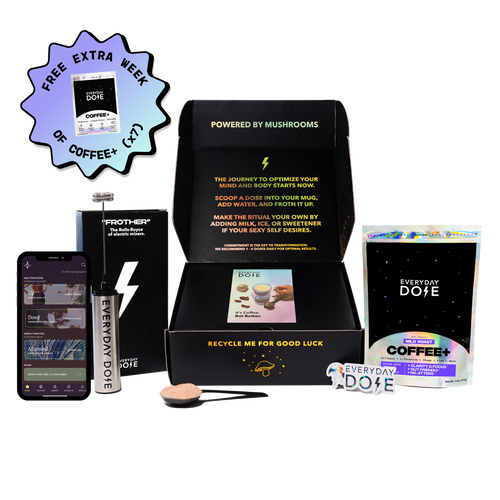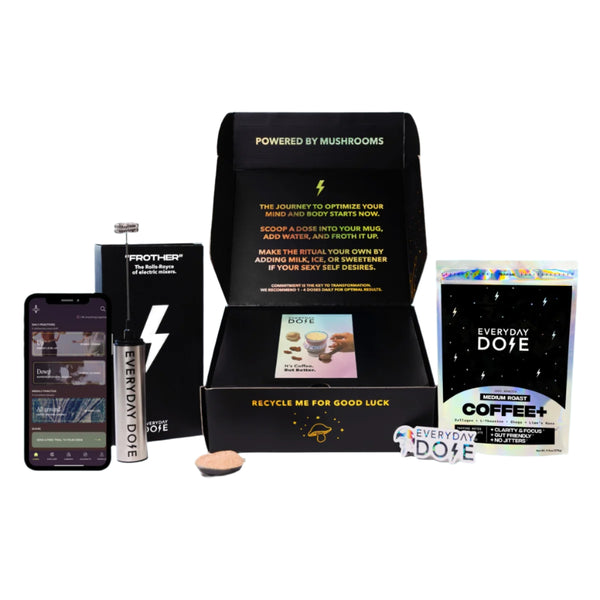The 4 Worst Foods for Gut Health

If you’re experiencing skin problems, feelings of anxiety, poor digestion, and fatigue, you might feel overwhelmed trying to figure out which issue to target first. However, in many cases, the root cause of these issues actually goes a little deeper — all the way to your gut.
Supporting your gut health is one of the keys to overall well-being. To help you get started, we’ll discuss the benefits of a healthy gut, the worst foods for gut health, and the best foods for gut health.
Why Does a Healthy Gut Matter?
You may have heard all the hype about gut health, but why is it so important to begin with? And what constitutes good gut health?
First, it’s important to know how the gut works. The small and large intestines are home to a wide variety of gut bacteria, which is collectively called the gut microbiome. These bacteria help our bodies digest food, absorb vitamins and minerals, and even play a role in our immune systems.
In a healthy gut, many different species of bacteria exist in a delicate balance. If this balance gets upset, one type of bacteria may overpower the others, leading to a state called dysbiosis. Dysbiosis, or an unbalanced gut microbiome, can lead to many health problems.
For instance, an imbalanced gut can be linked to the following symptoms:
- Bloating
- Constipation
- Indigestion
- Gastrointestinal discomfort
- Poor mental health (via the gut/brain axis)
- Skin problems like dryness and breakouts
- Excess stress
- Difficulty concentrating
- Poor sleep
All of these symptoms can impact your overall well-being. Conversely, having a good balance of healthy bacteria can also have many benefits for your overall health.
4 Worst Foods for Gut Health
The digestive system is a beautiful example of symbiosis in action — the bacteria in your gut provides health benefits and your body provides a welcoming environment for the bacteria to thrive. However, there are some foods that can negatively affect these bacteria.
1. Sugar
We know that sugar is delicious — who doesn’t love a scoop of ice cream or a bar of chocolate? As it turns out, our gut microbiota have a complaint to lodge against sugar.
Sugar can cause bad bacteria to outnumber good bacteria, which can ultimately turn into dysbiosis. It’s not just table sugar, either. Beware of sneaky sources of sugar like high fructose corn syrup, brown rice syrup, and even organic cane sugar.
2. Artificial Sweeteners
You might be tempted to swap table sugar out for some artificial sweeteners. However, these really aren’t any better for your good gut bacteria. They may not feed bad bacteria, but they can cause good bacteria to die off.
Look out for generic sweeteners like aspartame, saccharin, and sucralose, as well as sugar alcohols like erythritol, isomalt, xylitol, and maltitol. Even stevia, a popular natural sugar substitute, is under-researched, especially when it comes to the gut.
2. Processed Foods
Highly processed foods tend to be high in sugar, salt, trans fats, preservatives, and other additives that can damage your gut microbes and other areas of your health. Ultra-processed foods also have almost no nutritional value.
In general, it’s a good idea to avoid fried foods and foods high in added ingredients and eat whole foods when you can. Whole foods are foods that come straight from the source.
These include the following:
- Fresh veggies
- Fresh fruits
- Legumes
- Meats (although overconsumption of red meat may harm beneficial bacteria)
- Fresh dairy products
- Eggs
- Nuts
4. Alcohol
Unwinding after a long day with a glass of red wine is pretty common. However, many forms of alcohol are full of hidden sugars that might not appear on the label.
Alcohol itself can also cause inflammation in the gut, which can lead to all sorts of chronic diseases. You may want to trade your nightcap in for a soothing cup of chamomile tea or a warm cup of broth.
Best Foods for Gut Health
So, we’ve talked about which foods are bad for gut health — but which foods can you eat to actually support your digestive health? A registered dietitian or healthcare provider is the best source of advice for your unique health history and diet choices, but here are a few gut-healthy foods you can try to get started.
1. Fermented Foods
These are foods that have been mixed with a culture of good bacteria and left to ferment. During the fermentation process, the good bacteria (called probiotics) procreate and take over the food, giving it a tangy taste and wonderful health benefits. You can also take probiotic dietary supplements if fermented foods aren’t your thing.
Some popular probiotic foods include:
- Sauerkraut
- Kimchi
- Kefir
- Yogurt
- Kombucha
- Miso
- Pickles (certain kinds)
- Tempeh
2. Prebiotic Foods
Even microorganisms need food. Prebiotic foods contain soluble fiber, which feeds your good gut bacteria and helps encourage balance in your microbiome.
Prebiotic foods include:
- Jerusalem artichokes
- Whole grains
- Blueberries
- Most veggies
- Bananas
- Garlic
Even some mushrooms, such as lion’s mane, contain prebiotic fiber. We feature lion’s mane in our Mushroom Coffee+ for both its gut-supporting benefits and its ability to support focus. Our blend also includes collagen protein, which can support a strong gut lining and encourage nutrient absorption.
How Else Can You Support Gut Health?
While the food we eat plays a big role in our gut health, there are plenty of other things we can also do to support our digestive systems. For instance, stress, poor sleep, and poor hydration can also cause an imbalance in the gut microbiome.
The overall quality of our diet is another way we can support our gut. Eating a balanced diet that includes plenty of proteins, fatty acids, and antioxidants can help ensure our microbiome has everything it needs to support our health. If you’re not sure how much of which foods you should be eating, you can always work with a nutritionist to figure out a diet that works for you.
The Bottom Line
Gut health isn’t just good for digestion — it’s the foundation of our overall health. While there are many ways you can support gut health, it’s important to avoid foods that contain sugar, artificial sweeteners, alcohol, and preservatives.
Instead, try eating foods high in pro and prebiotics. For instance, our Mushroom Coffee+ contains lion’s mane mushroom, which is full of prebiotic fiber. To try our mushroom blends for yourself, shop our collection today.
Sources:
High Intake of Sugar and the Balance between Pro- and Anti-Inflammatory Gut Bacteria | PMC
RESEARCH ALERT: Artificial Sweeteners Significantly Alter the Small Bowel Microbioms | Cedars-Sinai
How Ultra-Processed Foods Affect your Gut Microbiome and Health | Whittier, CA
Start your day
The Right Way









